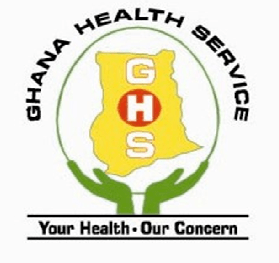Committee of Experts to promote medical tourism inaugurated
 The Ghana Health Service (GHS) Council, on Tuesday inaugurated a five-member Committee of Experts to promote medical tourism to enhance healthcare delivery in the country.
The Ghana Health Service (GHS) Council, on Tuesday inaugurated a five-member Committee of Experts to promote medical tourism to enhance healthcare delivery in the country.
Medical tourism primarily involves the travelling of people to other countries for the purpose of obtaining quality medical care.
It has been envisaged that the promotion of medical tourism in Ghana would ensure high savings to individual patients and the government; promote access to high quality treatment with modern state-of-the-art healthcare technology; eliminate waiting lists and related inconveniences.
Medical tourism was also expected to create employment opportunities for travelling agents, boost local tourism, and enhance revenue generation to health facilities that would be registered to provide needed medical treatment.
The Committee made up of Dr Akoreyea Kaba, the Director, Institutional Care Division, GHS; Col. (Dr) Gordon A. Obiri Appiah, a Nero-Surgeon at the 37 Military Hospital and Member of the GHS Council; Mr Ben A. Nkansah and Madam Romana Sarpong Omaboe, both representatives of the GHS Council, and Dr Emmanuel Srofenyo, the Medical Director of the Greater Accra Regional Hospital at Ridge, was given three months to submit its report to the GHS Council.
Dr Yao Yeboah, the Chairman of the Ghana Health Service Council inaugurating the committee, said the Committee was expected to among other things, compile major medical procedures that could be managed locally and their comparative costs.
These, he said, include kidney transplant, knee, hip and valve replacement with by-pass, retinal detachment, Invitro Fertilization (IVF cycle), orthopedics, maxillo-facial surgery, cardiac and cosmetic surgeries.
He said they would also be expected to undertake needs assessment of health facilities in the public, private and quasi-government sectors that could provide medical tourism, identify the shortfalls and estimated budgets in addressing such challenges in the short, medium and long term.
The Committee members would also compile a register of local specialists and consultants as well as Ghanaians in the Diaspora with the required professional qualification and experiences, who would be eager to support the project, and further prepare and submit a final Legislative Instrument as well as regulations for ratification.
Dr Yeboah said the Committee was required to work within the next three months, but the duration might be subjected to review, should the need arises.
Dr Anthony Nsiah-Asare, the Director-General of the Ghana Health Service, said it was envisaged that upon the completion of the exercise, there would be a comprehensive operational policy capable for operationalising the medical tourism in the country.
Giving a brief background, he said it has been observed that the health sector over the past years had been compelled to medically evacuate patients from the public, quasi-government and private sectors, who for want for local requisite medical facilities, technology and qualified professionals, travelled abroad for further management of their health conditions.
The Director-General said the relatively expensive costs of such treatments, not to mention the inconveniences such patients and their accompanying dependents had to go through, could not be over emphasised.
He said it was noteworthy however, that Ghana in recent years had commissioned new and rehabilitated health facilities such as the Greater Accra Regional Hospital at Ridge, with state-of-the-art technology, that could be used to kick-start the medical tourism project and later extend it to other selected facilities across the country.
Dr Nsiah-Asare said it was in respect of the aforementioned backdrops that the GHS Council, in its quest to strengthen healthcare delivery in Ghana, had empanelled the expert committee to promote medical tourism.
He said the GHS Council was convinced that the establishment of medical tourism would attract patients from the West African Sub-region in particular, to receive the needed treatment in accredited health facilities.
He urged the Committee to work hard to secure international accreditation for the various health institutions that would be selected for the project.
Source: GNA
